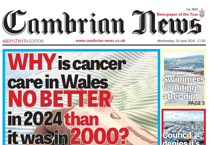The International Negotiating Committee (INC) met in Geneva this August, its aim to agree an international treaty to curb the use of plastics. Part of the United Nations Environment Programme (UNEP), the August 2025 conference came after several years of negotiating in a variety of locations around the globe. It ended without an agreement.
Inger Anderson, UNEP’s Executive Director, said , “While we did not land the treaty text we hoped for, we at UNEP will continue the work against plastic pollution – pollution that is in our groundwater, in our soil, in our rivers, in our oceans and yes, in our bodies.”
Tosca Ballerini from Renewable Matter explained why INC failed. “On one hand, the High Ambition Coalition (85 countries led by Rwanda and Norway … want a treaty with global rules that regulate the entire life cycle of plastic. On the other hand, a smaller group, the so-called Like-Minded Group (petrochemical countries led by Saudi Arabia …), wants a voluntary Global Plastics Treaty, with provisions addressing only waste management.”
Some years ago strong campaigns started, including here in west Wales, to curb the use of single-use plastics. Plastic straws and cutlery became a thing of the past. Plastic carrier bags too had to be paid for which reduced their use significantly, although on-line shopping is reversing this trend. These were easy targets, totally unnecessary items or easily replaced by more sustainable materials. Yet there are plastic water and juice bottles galore in use and our shop shelves groan under the weight of just about everything that’s packaged in some sort of plastic.
We can celebrate our recycling rates but how much of our plastic waste is actually recycled and how much ends up in energy from waste units, burnt? And how about the enormous amounts of plastic that litter our lanes and our beaches? “Surveys by Keep Wales Tidy in 2023-24, showing drinks-related litter on 43.6 per cent of Welsh streets,” states Huw Irranca-Davies, Deputy First Minister and Cabinet Secretary for Climate Change and Rural Affairs.
And worst of all is the amount that ends up in poorer countries. An Earth Day report writes, “Highly industrialized and post-industrial economies often rely on industrializing countries to manage their waste. Once plastic has been shipped across the world, guzzling energy in the process, it often arrives in the ports of low-income countries who are left to deal with the dirty work of processing, recycling, and repurposing our trash.”
I welcome the community-run beach clean-up in Aberystwyth. Hopefully, they keep it up. We collect litter from our lane every year and are always astonished at the crap people drop. Some very irresponsible individuals simply chuck things out of their car when they’ve finished with them, items like coffee containers from take-aways nowhere near our lane, burger trays from other far away outlets.
It shouldn’t be a case of either stop the supply of plastics or deal with the end use problem. We need to do both.
To tackle the user end of plastic waste, we could come down much harder on litter louts by using on the spot fines. The introduction of Deposit Return Schemes (DRT) has to be a no-brainer. Huw Irranca-Davies clearly recognises the benefits and is working with industry and with partners across the UK to make it feasible. Volunteer litter pickers who “currently remove more than 1,500kg of rubbish a year from Yr Wyddfa,” welcome this.
But we also need a cultural shift. We all need to take responsibility for the things we buy and not just expect to dump things in our bins for councils and governments to sort. Remember: refuse, reduce, reuse before recycle.





Comments
This article has no comments yet. Be the first to leave a comment.